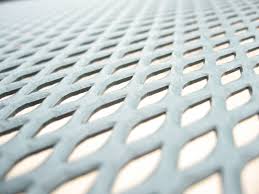 Washington state is suing Johnson & Johnson mesh maker Ethicon for defective pelvic mesh sold to Washington women. The state of Washington vs. Johnson & Johnson, et al. petition, filed May 24, 2016, says J&J sold some 12,000 pelvic or transvaginal mesh devices to unsuspecting Washington women from 2005-2015.
Washington state is suing Johnson & Johnson mesh maker Ethicon for defective pelvic mesh sold to Washington women. The state of Washington vs. Johnson & Johnson, et al. petition, filed May 24, 2016, says J&J sold some 12,000 pelvic or transvaginal mesh devices to unsuspecting Washington women from 2005-2015.
The Washington petition alleges that J&J marketed its mesh products as “new and revolutionary,” claimed that they saved time in the operating room, offered superior outcomes to traditional POP or SUI stitch-surgery methods, and had the advantage of faster recovery times.
The complaint reads, “Defendants made these representations without disclosing to doctors the serious complications their mesh can cause women.”
The petition further states that J&J marketed its mesh products as “improvements over traditional repair methods (i.e. native tissue repair) when they knew such claims were inaccurate.”
Severe, Unavoidable Complications
The petition language is clear and forthright, alleging similar problems about which more than 100,000 women across the country have complained and filed suit:
“Defendants knew at all relevant times that the presence of polypropylene [plastic] in the body and the process of implanting mesh through the vagina could cause severe unavoidable complications. (Defendants) knew these complications are caused by the design and placement of the mesh and cannot be avoided by good surgical technique alone.”
Permanent Disability, Egregious Suffering
The petition alleges that some women become “permanently disabled” from mesh complications, from mesh that can erode and migrate into internal organs, becoming nearly impossible to remove:
“The suffering by these women is even more egregious considering that the underlying condition the mesh is meant to treat is not life threatening. Further, women have a non-mesh surgical alternative [with native tissue] that has been used for decades. Native tissue repair does not pose the same risks as mesh and can be just as effective for treating pelvic floor conditions.”
Mesh misrepresented, adds Risks
The main problem with plastic mesh for women’s pelvic floor repairs is tidily summed up in the complaint section which says J&J misrepresented the safety of its products by failing to disclose risks and complications associated with pelvic floor surgery: “Defendants failed to disclose that their mesh devices carry similar risks as other pelvic floor surgeries and additional risks caused by the mesh.”
All mesh makers have always had a fundamental problem with the very idea of selling a medical device designed to be implanted in an open-contaminated area such as the vagina, which cannot be sterilized, ever. Such a procedure violates the first rule of surgery, that one needs a clean, sterile field of operation.
Contaminated Surgical Procedure
The petition reads: “Although all of Defendants’ products were used in contaminated areas – the vagina, Defendants misrepresented that ‘if the mesh implant is to be used in contaminated areas, it must be only with the understanding that subsequent infection may require its removal.’”
The petition further states that Defendants misrepresented plastic mesh’s risk in other ways, including that mesh causes infection in a cavity that can never be completely sterilized; mesh is not inert as claimed by Defendants, on the contrary, it causes a foreign body reaction; the mesh hardens, contracts, erodes into other body organs, becomes so rigid and distorted that complete mesh removal is extremely difficult or impossible.
The petition details several complications that can result:
• chronic infection
• chronic foreign body reaction
• chronic inflammation
• mesh hardening
• mesh contracture, erosion into other body organs
• mesh exposure (migration of mesh into the vagina)
• mesh extrusion
• mesh degradation (breakdown of mesh particles)
• permanent dyspareunia (inability to have sex)
• chronic pain
• vaginal shortening, stiffness, distortion
• sexual dysfunction
• injury to sexual partners
• urinary and bowel dysfunction
• other lifelong problems
The petition reads: “Mesh removal is the only treatment option for most continuing mesh complications. Removal often requires multiple surgeries, which may or may not resolve complications, and may in fact result in new problems. (Yet) Defendants failed to disclose the lack of a safe and effective means for removal.”
Mesh not FDA Approved
The petition also alleges that J&J and its subsidiaries misrepresented in their informational and marketing materials that their Polypropylene Mesh Products were FDA Approved. Mesh was never approved. It was only cleared by the FDA 510(k) equivalency process, which fails to verify safety or efficacy of the product in question and does not usually require clinical trials.
J&J and its subsidiaries also stand accused by the petition of failing to disclose adverse events reported by women who had been implanted with transvaginal or pelvic mesh
Washington State sues Johnson & Johnson Mesh Maker
Mr. Bob Ferguson first launched an investigation into J&J’s pelvic or transvaginal mesh implants when a Washington state woman wrote the DA a letter detailing the problems she had with mesh and complaining that she had not been warned of the risks.
Mr. Ferguson filed the petition, which was also signed by Washington State Senior Counsel Elizabeth J. Erwin, Asst. AG Andrea M. Alegrett, Asst. AG Leilani N. Fisher.
Related
- Transvaginal Mesh Lawsuit
- Pelvic Mesh not approved by FDA
- Pelvic Mesh contracts, shrinks, degrades: Expert

by Matthews & Associates




